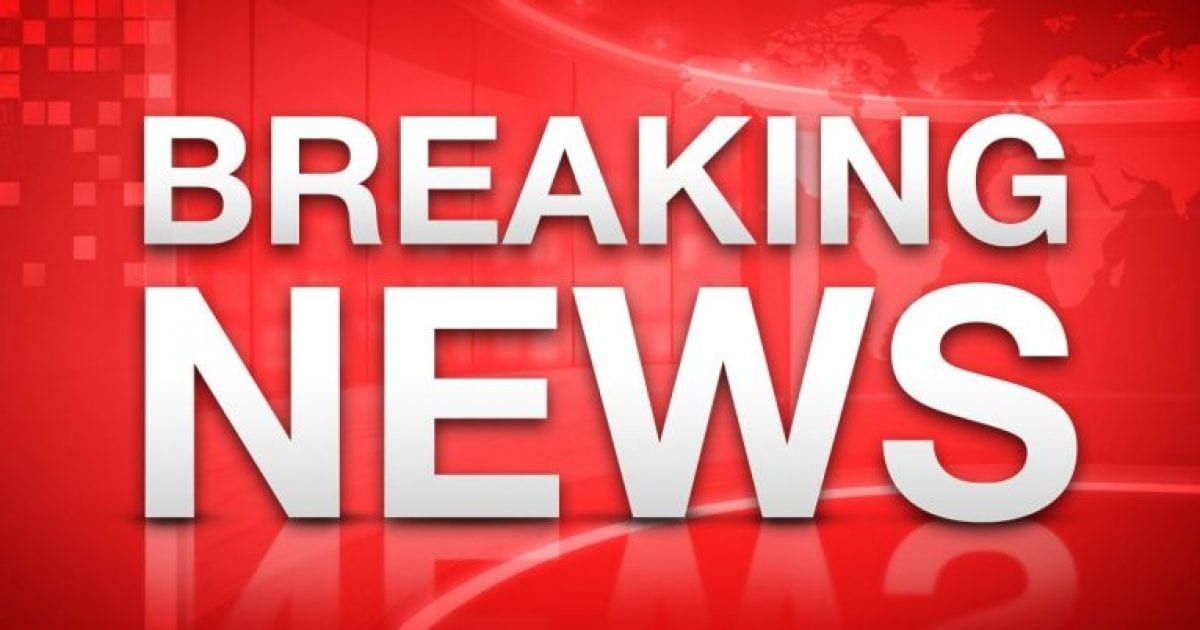The chairman of the Senate Intelligence Committee just poured cold water all over the hopes and dreams of the resistance when he said he finds NO EVIDENCE of Trump Russia collusion!
He noted it that despite more than two years of intense investigation, he’s seen no evidence of Trump-Russia collusion.
Here’s the exact quote:
“If we write a report based upon the facts that we have, then we don’t have anything that would suggest there was collusion by the Trump campaign and Russia,” Republican Richard Burr told CBS News in an interview published on Thursday.
Folks, he just hit the nail on the head.
The Mueller investigation has produced NOTHING tied to Trump/Russia collusion.
It needs to stop.
Watch this and then scroll down for more:
Here's more, from Reuters:
The chairman of the U.S. Senate Intelligence Committee said its Russia investigation has found no proof that President Donald Trump’s presidential campaign colluded with Moscow, an assertion that congressional sources said puts him at odds with Democrats on the largely bipartisan panel.
“If we write a report based upon the facts that we have, then we don’t have anything that would suggest there was collusion by the Trump campaign and Russia,” Republican Richard Burr told CBS News in an interview published on Thursday.
Burr said the committee, which has been investigating alleged interference in the 2016 U.S. election two years, has not begun drafting its final report. He also could not say how much of it ultimately would be declassified, according to CBS.While there has been extensive bipartisan cooperation on the Senate panel, including between Burr and ranking Democrat Mark Warner, Democrats seriously disagree with Burr on evidence of collusion, according to congressional sources familiar with internal committee discussions.
A spokesperson for Warner said he had no comment on the CBS report.
The Senate Intelligence Committee is among several congressional panels investigating Russian interference and the potential collusion with Trump’s 2016 campaign, along with the U.S. Special Counsel’s Office under the U.S. Department of Justice.
Trump, saying he is a victim of “presidential harassment,” has repeatedly blasted the federal investigation being led by Special Counsel Robert Mueller as a “witch hunt” while denying collusion. Moscow also has denied interference in the U.S. political system, counter to U.S. intelligence agency conclusions that it sought to sway the election in favor of Trump and undermine Democratic rival Hillary Clinton.
Burr’s panel also is examining whether former Democratic President Barack Obama did enough to follow up on official government reporting of Russian election interference, as well as the U.S. intelligence community’s January 2017 assessment of Russia role in election, the impact of social media and election security.
Members of the panel are in sync on those topics but differ on the collusion issue, the congressional sources said, adding that Democrats likely would write their own counter-report if Republicans produce a report saying there was no collusion.
Burr told CBS that despite media reports regarding a number of interactions between Trump and his associates and Russia, he was “unpersuaded” that they could be called collusion given the panel’s findings. He said it was difficult to ascertain people’s motives.
Burr did not say when his panel’s work would wrap up.
Other congressional committees have ramped up their oversight with Democrats in the House of Representatives vowing to take a closer look at the Trump administration and the president’s other dealings.
Republicans chair the committees in the Senate, where they have a majority, while panels in the House are led by Democrats, who won a majority in that chamber in the November election.
Trump, in his State of the Union address on Tuesday, called investigations into him and his administration “ridiculous” and told lawmakers their probes would stall legislative efforts and, without offering evidence, endanger the nation’s economy.
Despite the warning, House Intelligence Committee Chairman Adam Schiff on Wednesday vowed to pursue a wide investigation into attempts to influence the 2016 election that included looking at Trump’s financial transactions.
And from CBS:
The investigation into Russian intelligence activities by the Senate Select Committee on Intelligence turned two years old, without fanfare, last month.
For almost as long, the inquiry, led by Republican Chairman Richard Burr of North Carolina and Vice Chairman Mark Warner, a Virginia Democrat, has been held up as the last bastion of bipartisanship in Washington.
After a parallel investigation divided the House Intelligence Committee last year, the Senate's probe has been under intense pressure to offer a single set of findings.
Burr, who is known in Senate hallways for his preference to go sockless and the two-fingered hook that often bears his jacket, has spoken little about the probe he leads. But he thinks deeply about how its conclusions should be presented. And he acknowledges now that the investigation is broader, and perhaps more consequential, than it has long been thought to be.
"I'm not going to tell you that what we set out to do — which was to understand what happened in '16 — is what's extended the life of the investigation," Burr said in a rare interview with CBS News. "I think it's a better understanding of what happened and how coordinated and organized the effort was."He spoke in his second-floor chambers in the Russell Senate Office Building, where multiple deer mounts circle the ceiling and a non-working fireplace is stacked with real wood. Burr, 63, had angled himself in a worn leather chair, legs extended, and tented his fingers around the edges of a coffee cup. He spoke quietly, with occasional long pauses as he considered his responses.
"We'll be judged at the end of this on the product that we produce," he said solemnly. "We'll also be judged on the process that we chose ... None of us ever anticipated that this would be two years."
For more than an hour, Burr detailed the committee's work and findings to date, explained why its investigation will stretch beyond its second year, and addressed the potential of a partisan breakdown at its conclusion. He described the committee's coordination with the investigation led by special counsel Robert Mueller, its plans for delivering a final report, and hinted at what kinds of questions it may, at least for now, have to leave unanswered.
He made clear that the investigation is not compiling the story of one pivotal election, but of something larger, more complicated and, from a counterintelligence perspective, more nefarious. The final report may be so highly classified, he said, that a meaningful portion may not be made public at all.
"Many of the connections that we've made are the direct result of intelligence products," he said. "I think it's safe to say we've interviewed people that I don't even know if the special counsel knows about them — but you've got to remember that we're on a totally separate path than what they are."
He acknowledged that a core part of committee's charge is to tell the country, in the greatest detail possible, what happened in 2016.
"The other piece of that," he said, "is probably work that the committee will do for the next decade. And it's work that has helped even our intelligence community's understanding of Russia's capabilities and intent behind this."
"This was not," he stressed, "'Let's go screw with the Americans in 2016.'"
Burr had not wanted to expand the universe of witnesses the committee interviewed, but felt he had little choice. He guessed that the committee had completed interviews with its target list "fairly early on" in 2017.
"It's not the people that were on the deck that we knew about that lengthened the time. It was the people that we didn't know about that we came to the conclusion — either for the campaign interactions or for this bigger picture that we're looking at — that extended the timeline," he said.
Adding a new witness to the roster added at least three weeks to the investigation, he said, between scheduling, logistical preparations, and dealing with legal counsel.
Though most witnesses were encouraged to come in voluntarily, Burr acknowledged he had resorted to issuing subpoenas — either because all other appeals had gone unanswered, or because witnesses themselves had requested it.
Requested to be subpoenaed?
"Can't get into who," Burr said, "but there are some that" — he intimated an elbow nudge as he imitated a witness saying, "'I'll come if you subpoena me.'"
"They wanted the cover of being compelled," he said.
Burr also argued that a subpoena was not a surefire way for him to get answers since he was effectively out of tools if witnesses, like Trump advisor Roger Stone, indicated they would plead the Fifth.
"They can refuse a subpoena and we can go through a fairly lengthy Senate process to hold them in contempt," he said, "but understand that when I start that process, we've pretty much given up on the ability to have an interview."
"So it's only to be able to say, in the annals of history, 'We used every tool that we could but we couldn't get them here," he said.
One key witness whom the committee had been unsuccessful in engaging, Burr said, was Christopher Steele, the British former intelligence officer who authored the controversial, partially verified dossier, which described links between Trump associates and Russia and played a part in triggering the FBI's counterintelligence investigation.
Last February, the former chairman of the Senate Judiciary Committee, Iowa Republican Chuck Grassley, sent a letter to a Washington-based lawyer acting as an intermediary for Steele asking whether Steele may have been indirectly on the payroll of Oleg Deripaska, a Russian oligarch with close ties to Putin. The implicit suggestion of Grassley's inquiry was that the dossier contained purposeful misinformation intended to help Russia. It is not a view, or a suspicion, that Democrats share.
Burr would only say that Steele remained of interest, but out of reach.
"We've made multiple attempts," to elicit a response, Burr said, but declined to surmise why Steele would not engage.
"You'd have to ask him," he said, referring to Steele. "I think there will always be some questions as to…" he stopped, and paused for a long time.
"…whether his connections to this extend far outside of the contract."
Preexisting connections to what or whom?
"Oh, I can't get into it," Burr said. "Those are things that I'd love to know the answers to, but I don't have the ability to do it. And I'm sure at some point — maybe — we'll know the answer to that."
Burr has previously said it would be impossible to assess the credibility of the dossier without understanding who Steele's sources and sub-sources were; failing to speak directly with Steele suggests that the committee has not, itself, come to a determination of the dossier's reliability.
"I think it's safe to say that we have followed every potential lead and we know a heck of a lot more today than we did two years ago," he said. "But I can't tell you we —" he trailed off again.
"— we know the motivation."
A request for comment from Steele was not returned.





Join the conversation!
Please share your thoughts about this article below. We value your opinions, and would love to see you add to the discussion!